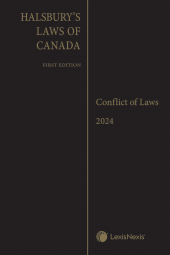The Family Dispute Resolution Handbook, 6th Edition + USB
Less than 2% of families resolve their family law issues in court, so they need alternative processes that encourage cooperative, timely and cost effective resolutions. This book incorporates all types of dispute resolution for family law (mediation, arbitration, collaborative practice, parenting coordination), discussing each of these processes in depth.
One Year Subscription Only Terms
Subscribers receive the product(s) listed on the Order Form and any Updates made available during the annual subscription period. Shipping and handling fees are not included in the annual price.
Subscribers are advised of the number of Updates that were made to the particular publication the prior year. The number of Updates may vary due to developments in the law and other publishing issues, but subscribers may use this as a rough estimate of future shipments. Subscribers may call Customer Support at 800-833-9844 for additional information.
Subscribers may cancel this subscription by: calling Customer Support at 800-833-9844; emailing customer.support@lexisnexis.com; or returning the invoice marked 'CANCEL'.
If subscribers cancel within 30 days after the product is ordered or received and return the product at their expense, then they will receive a full credit of the price for the annual subscription.
If subscribers cancel between 31 and 60 days after the invoice date and return the product at their expense, then they will receive a 5/6th credit of the price for the annual subscription. No credit will be given for cancellations more than 60 days after the invoice date. To receive any credit, subscriber must return all product(s) shipped during the year at their expense within the applicable cancellation period listed above.
Product description
**Please note LexisNexis' USBs, CDs and DVDs are not compatible with Mac software.
A Practical and Thorough Review of the ADR Options in Family Law
This text, now in its sixth edition, is a must have for family law lawyers and other mediation professionals dealing with families facing separation and divorce, including mental health professionals, financial specialists, clergy, educators and judges. Less than 2% of families resolve their family law issues in court, so they need alternative processes that encourage cooperative, timely and cost effective resolutions: this book discusses each of these processes in depth and helps family law professionals and their clients choose which process is best for them.
These processes aim to:
- Help parties select the most appropriate process for their family
- Position parties as collaborators instead of adversaries
- Give parties control to create their own process and results
- Significantly reduce conflict time and cost of litigation
Discover how and when to implement four new processes:
- Mediation-arbitration, where a mediator can be asked to be the arbitrator for unresolved issues
- Arbitration, in which parties delegate decision making to a professional of their choice, while preserving certain appeal rights
- Custody assessment, in which a mental health professional makes a parenting plan recommendation to the parties and/or a judge
- Parenting coordination, that allows a mental health professional to decide day-to-day issues for high-conflict couples following an agreement, order, or award
This edition includes the latest developments in mediation and collaborative practice, and a chapter on the Training Requirements and Rules of Professional Conduct for mediators, collaborative lawyers, and arbitrators. Coverage also includes the critical topic of Domestic Violence and Screening.The book also provides extensive samples and precedents of every process that is discussed.
What's New in this Edition?
- Appendices and USB include:
- Sample arbitration and mediation agreements
- Collaborative lawyer retainer agreements
- Parenting coordinator agreements
- Client questionnaires
- Domestic violence screening questionnaires
- Many precedents and documents drafted by leading family professionals
- Overview of Bill C-78 Reforms to the Parenting Provisions of the Divorce Act
- New chapter on Parenting Coordination
- Newly rewritten chapters on Collaborative Practice and Ethics and Professional Conduct
- New and updated forms and precedents
A Multidisciplinary Resource For
- Family lawyers who participate in any ADR practice and advise separating couples to resolve issues without an adversarial court battle
- Mediators/arbitrators who wish to learn about the new collaborative models in which they can participate
- Mental health professionals, including social workers, psychologists and psychiatrists, who are interested in becoming custody assessors and parenting coordinators
- ADR and family law students learning about the current range of collaborative law options
- Government agencies such as the Office of the Children's Lawyer, Official Guardian etc. may find the book useful as a reference guide
Table of contents
Chapter 1: Overview of Dispute Resolution Options
Chapter 2: Screening for Appropriateness
Chapter 3: Managing the Process
Chapter 4: Mediation in Practice
Chapter 5: Collaborative Practice
Chapter 6: Parenting Coordination
Chapter 7: Custody Assessments
Chapter 8: Family Law Arbitration
Chapter 9: Dispute Resolution Outcomes
Chapter 10: Protecting the Best Interests of Children
Chapter 11: Legal Issues: Custody and Access
Chapter 12: Legal Issues: Support and Property
Chapter 13: Professional Ethics and Conduct
 Lexis Nexis
Lexis Nexis 



